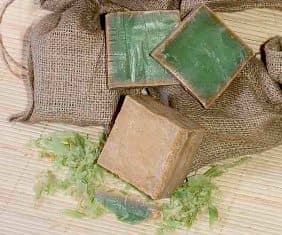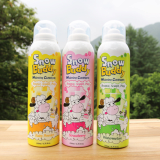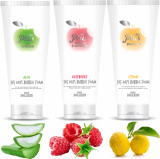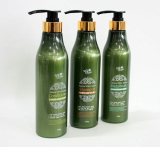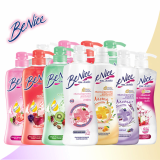Lazini int ltd
- Country / Year Established
-
 Syria
/
Syria
/
- Business type
- Others
- Verified Certificate
-
13

| Product name | Natural Organic olive oil soap | Certification | - |
|---|---|---|---|
| Category | Bath Soap | Ingredients | - |
| Keyword | care | Unit Size | - |
| Brand name | Aleppo | Unit Weigh | - |
| origin | Stock | - | |
| Supply type | - | HS code | - |
Product Information
The traditional Large blocks of soap are made by hand using traditional methods, these soaps are cut into blocks and stamped with the mark of the producer, the soaps are then set out to dry for 6 to 9 months on racks in well aerated arches.
In the course of drying, not only does the outside get harder, but the colour transforms from an olive green to a beautiful deep gold.
Aleppo soap is a handmade, hard bar soap. Aleppo soap is also known as savon d'Alep, laurel soap, or ghar soap (laurel is known as ghar in Syria). It derives its English and French names from the city of Aleppo, Syria, where it is reputed to have been made for thousands of years.
Aleppo soap is classified as a Castile soap as it is a hard soap made from olive oil and lye. What distinguishes Aleppo soap from other Castile soaps is the inclusion of laurel oil in its formulation.
History
The origin of Aleppo soap is lost in time. Although claims of it's great antiquity abound; such as references in the popular press to Egyptian Queen Cleopatra and Queen Zenobia of Syria using Aleppo soap, these claims have yet be verified by Scholarly method.
It is commonly thought that the process of soap-making emanated from the Levant region (of which Aleppo is a main city) and to have moved west from there to Europe after the first crusades based on the claim that the earliest soap made in Europe was just after the crusades, but in fact the Romans in the first century AD knew about soap and Zosimos of Panopolis ca. 300 AD described soap and soapmaking.
Manufacturing process
Traditional Aleppo soap (Ghar) is made by the "hot process".
First, the olive oil is brought into a large, in-ground vat along with water and lye. Underneath the vat, there is an underground fire which heats the contents to a boil. Boiling lasts three days while the oil reacts with the lye and water to become a thick liquid soap.
The laurel oil is added at the end of the process, and after it is mixed in, the mix is taken from the vat and poured over a large sheet of waxed paper on the floor of the factory.
At this point the soap is a large, green, flat mass, and it is allowed to cool down and harden for about a day. While the soap is cooling, workers with planks of wood strapped to their feet walk over the soap to try to smooth out the batch and make it an even thickness.
Then the soap is cut. Three workers drag a rudimentary, rake-like cutting device through the soap to cut it one way, then again the other way until the whole mass is cut into individual cubes. Each cube is stamped with the soap artisan's name.
The cubes of soap are then stacked in staggered cylinders to allow maximum air exposure. Once they have dried sufficiently, they are put into a special subterranean chamber to be aged for six months to a year.
While it is aging, the soap goes through several chemical changes. First, and most importantly, the free alkaline content of the soap (the alkaline which did not react with the oil during saponification) breaks down upon slow reaction with air. The moisture content of the soap is also reduced, making the soap hard and long lasting. And lastly, the color of the outside of the soap turns a pale gold, while the inside remains green.
Modern Aleppo soaps are manufactured using a "cold process" and contain olive and laurel oils, and may contain a variety of herbs and/or essential oils.
 Ingredients
Ingredients
Traditional Aleppo soap (or Ghar), is made with 100% natural, olive and laurel oils, water and lye
The relative concentration of laurel oil ( typically from 2% - 30%) determines the quality and cost of the soap.
In the 20th century, with the introduction of cold process soap making, Allepian soap artisans began introducing a variety of herbs and essential oils to their soaps.
Skin care properties
Aleppo soap can be used daily as soap for washing and shampooing, as face mask, as shaving cream and baths for infants and babies.
The soap promotes wound healing, is effective against insect bites and is used for a variety of skin ailments such as skin allergies, irritated skin or conditions such as general dermatitis like eczema, psoriasis, bacterial dermatitis, acne, herpes, rosacea, it also helps prevent hair loss and it aids in the recovery of skin diseases.
Laurel oil is an effective cleanser, antibiotic, anti-fungal and ant-itching agent. Compounds extracted from Laurus Nobilis have recently been identified as an inhibitor of human melanoma (skin cancer) cell proliferation, as well as inhibiting other human tumor cell growths such as amelanotic melanoma, renal cell adenocarcinoma, and breast cancer cell lines.
Olive oil has been known for generations not only for its healing qualities but also as a natural, deep penetration moisturizer, regenerating skin cells and softening the tissue.
Unlike most soaps, Aleppo soap will float in water.
Natural laurel oil:
Gives hair softness and shine, prevents hair breaking, anti dandruff.
Give skin freshness, vitality and soft touch.
Helps to reduce muscles aches and Rheumatism pains.
B2B Trade
| Price (FOB) | Negotiable | transportation | - |
|---|---|---|---|
| MOQ | Negotiable | Leadtime | Negotiable |
| Payment Options | Negotiable | Shipping time | Negotiable |
- President
- Azzouz
- Address
- Victoriy jisr 2,14
- Product Category
- Facial Care
- Company introduction
-
Natural organic Aleppo olive oil soap , shampoo, balsams, herbal creams, massage oils, herbal tonics and other hair care and skin care products - wholesale and retail.
- Main Product


































